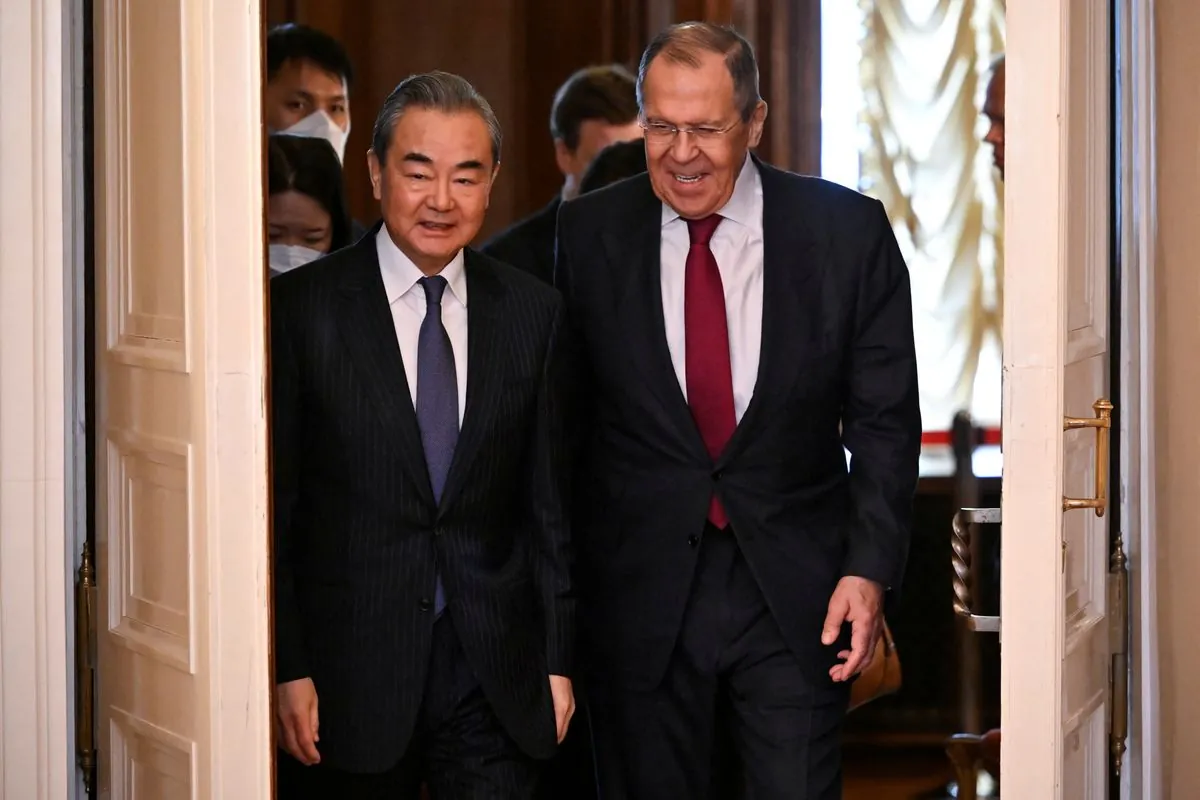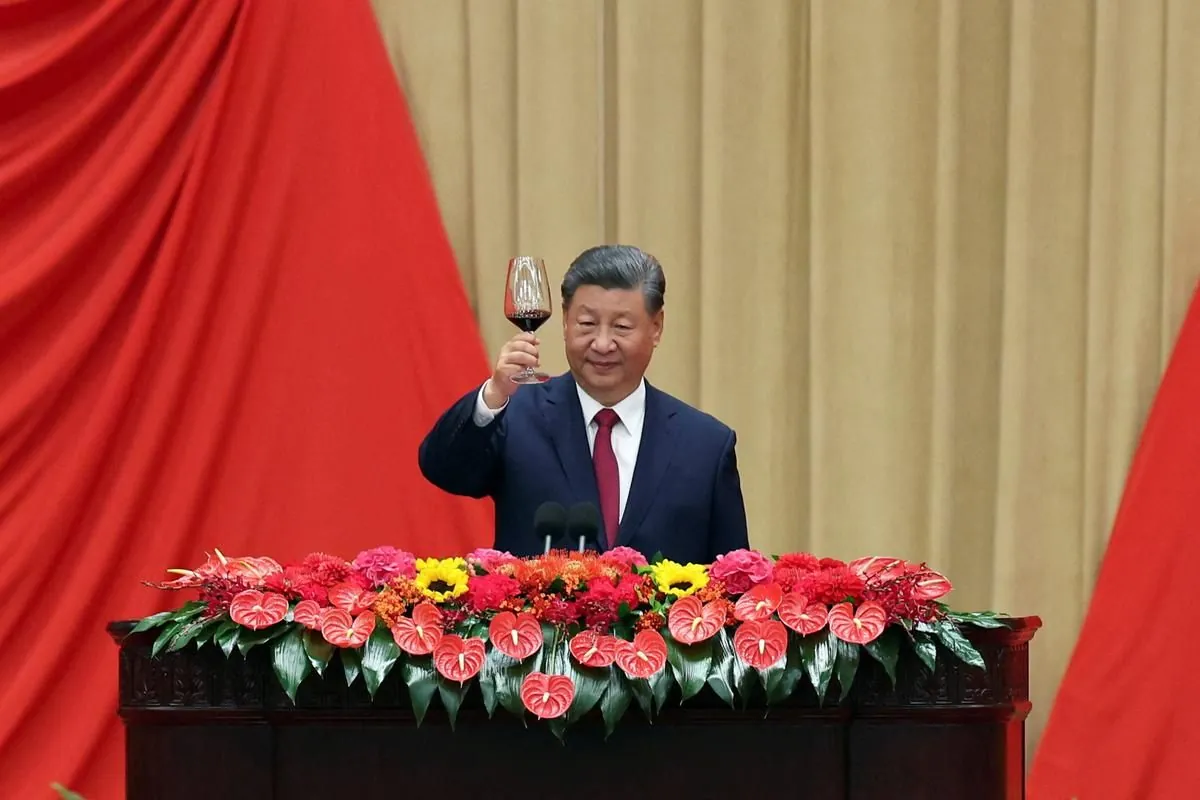Russia Aligns with China on Asian Issues, Criticizes U.S. Influence
Russia's Foreign Minister Lavrov expresses support for China's positions in Asia, including Taiwan. He criticizes U.S. influence and praises China's stance on Ukraine, highlighting shared views on regional security.

In a recent statement, Sergei Lavrov, Russia's Foreign Minister since 2004, has reaffirmed Russia's alignment with China on various Asian issues. This declaration comes as both nations mark the 75th anniversary of their diplomatic relations, established in 1949.
Lavrov expressed criticism towards the United States' expanding influence in the Asia-Pacific region, which encompasses East Asia, South Asia, Southeast Asia, and Oceania. He specifically addressed the situation surrounding Taiwan, accusing the U.S. and its allies of deliberately inflaming tensions in the Taiwan Strait, a 180-kilometer-wide waterway separating Taiwan from mainland China.
Russia staunchly supports the "One China" policy, a diplomatic acknowledgment that there is only one sovereign state under the name China. This policy aligns with China's claim over Taiwan, officially known as the Republic of China (ROC), which has been a de facto independent country since the Chinese Civil War in 1949.
Xi Jinping, President of the People's Republic of China since 2013, has consistently emphasized the goal of reunification with Taiwan. In a recent address, Xi reiterated that Taiwan is an integral part of China's territory and vowed to oppose any separatist activities.

Lavrov criticized the United States' support for Taiwan, noting that despite the absence of formal diplomatic ties, the U.S. remains Taiwan's primary international backer and arms supplier. This support is underpinned by the Taiwan Relations Act, which obligates the U.S. to provide Taiwan with defensive capabilities.
The Russian Foreign Minister also commented on the security situation in Europe and the Euro-Atlantic area, stating that the current system has been "fully discredited" by the actions of the United States and NATO. NATO, founded in 1949 as a military alliance between North American and European countries, has been a point of contention in East-West relations.
Lavrov proposed a "new architecture for Eurasian security" based on the principle of "regional solutions for regional problems." This concept aligns with the idea of subsidiarity in international relations and reflects the growing importance of Eurasian cooperation, as exemplified by organizations like the Shanghai Cooperation Organisation, founded in 2001.
Regarding the ongoing conflict in Ukraine, which began approximately 2.5 years ago, Lavrov praised China's "balanced and consistent" approach. He highlighted China's initiatives that call for addressing the root causes of the conflict, including what Russia perceives as NATO's eastward expansion and the creation of an "anti-Russian military bridgehead" in Ukraine.
The concept of a "military bridgehead" refers to a secure initial position seized by an attacking force in enemy territory, reflecting Russia's perspective on the strategic implications of Ukraine's alignment with Western powers.
"China's balanced and consistent approach to the Ukraine conflict rightly calls for the elimination of its root causes."
While China and Brazil have been promoting a peace plan centered on an international conference, Volodymyr Zelenskyy, President of Ukraine since 2019, has rejected this proposal. Instead, Zelenskyy has been presenting his own "victory plan," insisting on the restoration of Ukraine's 1991 post-Soviet borders.
As these diplomatic maneuvers unfold, the international community continues to grapple with the complexities of regional security, territorial integrity, and the shifting balance of power in what some have termed the "Asian Century" - a projected 21st-century dominance of Asian politics and culture.


































